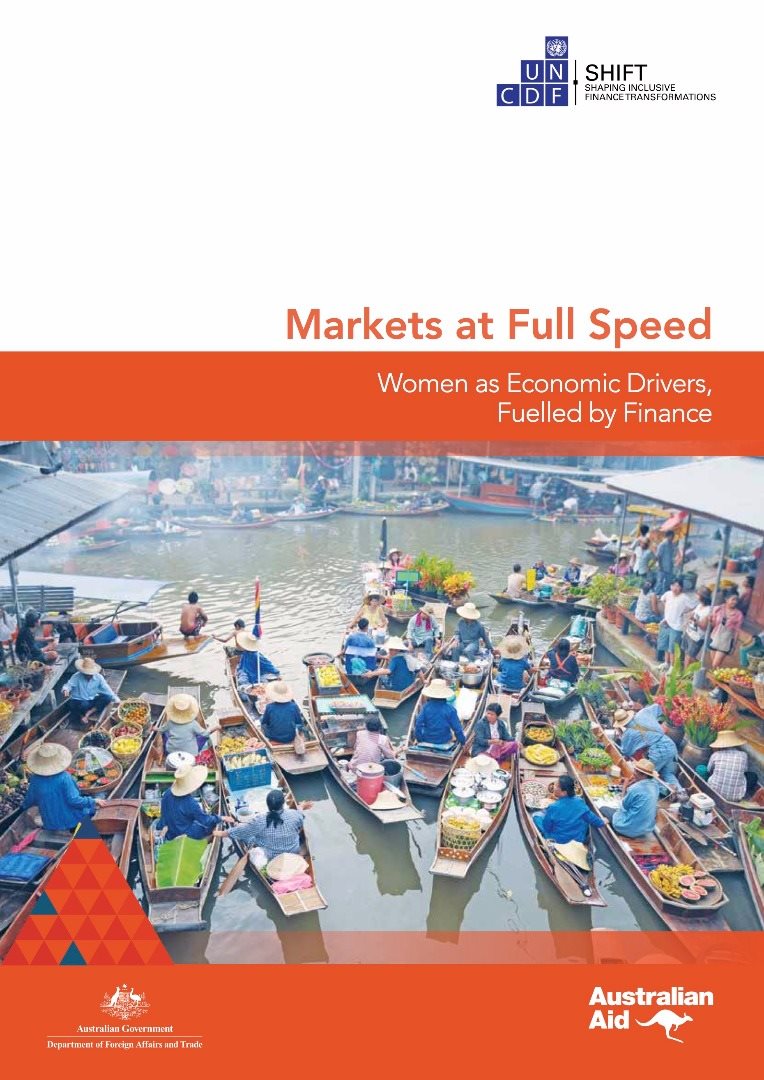Harnessing women’s full economic potential in markets brings socio-economic bene ts not only to women, but also to their families, communities, societies and the markets themselves. Nevertheless, while there is abundant evidence and sound arguments on how equal opportunities for women in economies could provide dividends for everyone, levelling the playing eld for women remains an arduous quest. In South-East Asia, the region projected to be the world’s ninth largest economy and Asia’s fourth largest by 2020, women must still take a backseat in driving the growth of economies.
Women in the region are often held back from establishing businesses, climbing up a career ladder or making wise purchasing decisions because they are bound by discriminatory social norms or legal barriers. Women’s needs and preferences for products and services—from consumer goods to nancial services—have yet to be strategically explored by markets.
This study explores the nexus between real economy markets and women’s economic empowerment in South-East Asia, and the role played by nancial services and institutions
in advancing women’s inclusion in these markets. This report aims to synthesize the central themes and lessons captured in the study process, drawing on insights from interviews and a workshop held for experts and practitioners on a wide range of women’s empowerment initiatives.
As developing countries work to expand their domestic markets by creating investment- friendly policies and regulations; establishing critical infrastructure; improving people’s access to health and education; and taking advantage of new technologies, the pro le and needs of women must be an explicit part of any conversation about such initiatives.
UNCDF seeks to advance women’s economic empowerment by integrating women-centric strategies into initiatives meant to grow inclusive enterprises. UNCDF does this by providing innovative nancing mechanisms and collaborating with financial service providers in developing countries. In South-East Asia, UNCDF will focus on policy advocacy, data and research, capital incentives and capacity development to accelerate women’s economic empowerment.
